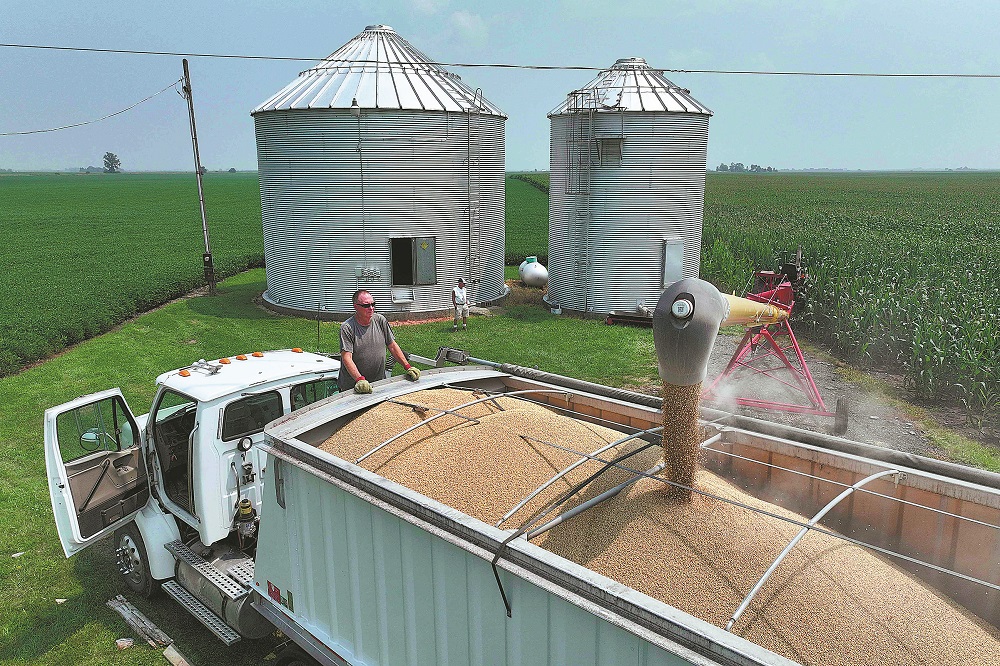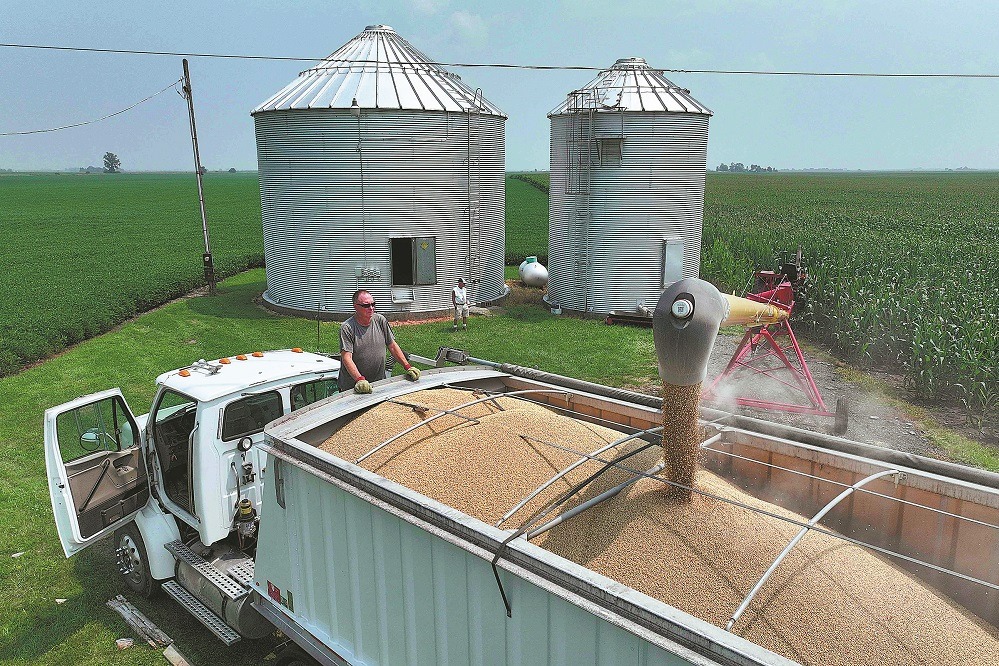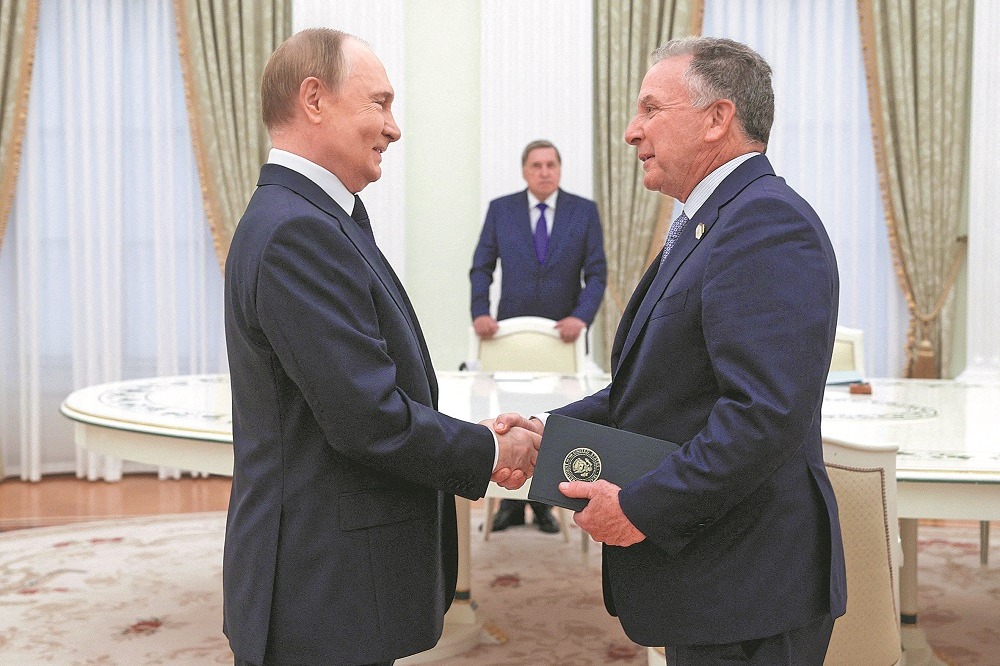Burden of US tariffs generates wave of concern
Around 37,000 manufacturing jobs have been cut amid fewer homebuyers and higher prices


Economists in the United States are closely watching the health of the country's economy through a series of key gauges amid the global rollout of US President Donald Trump's latest round of tariffs, a weak July jobs report and stubborn inflation.
Trump promised to usher the US into a "golden age" once he got back into office for his second term, as he vowed to transform manufacturing, boost factory work, lower taxes and put tariffs on foreign trade partners.
However, over six months down the line, inflation remains high and more worryingly, growth has decelerated. The US Bureau of Labor Statistics' July jobs report, released on Friday, revealed that the economy only added 73,000 nonfarm jobs, much lower than what the country's economists had anticipated, prompting scrutiny.
The sour news led Trump to fire the agency's commissioner, and in a post on Truth Social, he accused the report of being "manipulated for political purposes", adding, "The Economy is BOOMING."
Joao F. Gomes, the Howard Butcher III professor of finance and senior vice-dean of research, centers, and academic initiatives at the Wharton School of the University of Pennsylvania, said the economy is decelerating after the growth experienced in late 2023 and 2024.
"The slowdown might be driven by some nervousness about hiring and investing by businesses in response to the new administration's changing policies, the spillover from some DOGE-related budget cuts and a lack of workers due to an increase in immigration crackdowns," Gomes said.
The Associated Press reported that US employers have shed 37,000 manufacturing jobs since April, when Trump launched the so-called reciprocal tariff policy.
Data released by the US Census Bureau on Monday revealed that new orders for manufactured goods in June decreased by $30.9 billion, or 4.8 percent, to $611.7 billion, marking a decline in two out of the last three months. Meanwhile, net job hiring dropped to 14,000 in June and 19,000 in May.
However, the White House remains optimistic and resolute about its successes, pointing to a US Bureau of Economic Analysis finding that GDP grew at an annualized 3 percent in the second quarter.
Goldman Sachs has forecast that growth in the final two quarters will be just one percent, as consumers rein in spending. It also expected "a sharp slowdown in real income growth that reflects weaker job growth and higher tariff-driven inflation".
Experts warned that globally, most trading partners are encountering tariffs on copper, steel and aluminum, a situation that is likely to have a negative impact on the economy in the long run.
David A. Gantz, the Will Clayton fellow in trade and international economics at Rice University's Baker Institute for Public Policy, said: "The increased tariffs on steel, aluminum, copper and automotive goods, and other goods imports from virtually all US trading partners, will have a… negative impact on the US economy."
Ahead of Thursday, when most of the "reciprocal" tariff rates fully kick in, the Trump administration negotiated tariff agreements with the European Union, Japan, South Korea, the Philippines, Indonesia and other nations that have not been disclosed by the White House. Different countries are subject to varying tariff rates.
Potential fallout
Economists have long cautioned that the burden of tariffs would initially impact US businesses, before eventually affecting consumers. The US economy could also see a fallout.
Gomes, the professor at Wharton, said: "Tariffs will likely slow down the economy further and, perhaps most importantly, have encouraged the Federal Reserve to hold interest rates higher than (it) should or would otherwise do."
Trump has repeatedly urged Federal Reserve Chair Jerome Powell to cut benchmark interest rates. But Powell has adopted a wait-and-see attitude to assess how the economy responds to tariffs.
On Tuesday, Trump said that he will decide on a nominee to fill a coming vacancy on the Federal Reserve's Board of Governors by the end of the week, and had separately narrowed the possible replacements for Powell to a short list of four, Reuters reported.
Trump believes that lower rates will make mortgages more affordable and increase homebuying, which is another important economic indicator. But there are fewer homebuyers around, higher prices and high mortgage rates, the National Association of Realtors said.
Thomas Fullerton, an economist and professor of economics and finance at the University of Texas at El Paso, said: "High tariffs are needlessly raising the costs of raw and intermediate inputs that contain steel, aluminum, copper and lumber, raising the cost of residential construction precisely at a juncture when housing shortages exist in many regions."

































